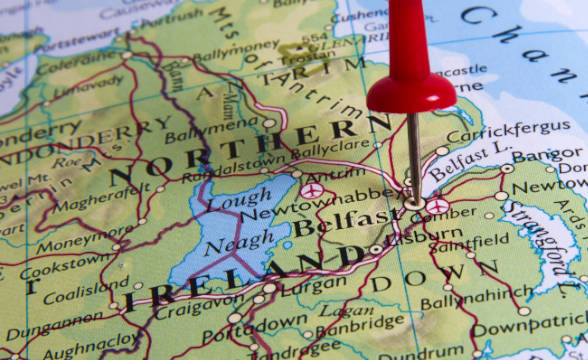Ireland Introduces New Rules for Regulating Gambling Industry

Sweden may have dodged a daytime ban on its gambling, but Ireland is heading in the opposite direction. The Irish Join Committee on Justice has taken a look at an upcoming Gambling Regulation Bill and has reached a conclusion that gambling should not be advertised before 9 pm and that the country should take a step towards DNS blocking of illegal gambling sites.
Blocking Illegal Gambling Sites in Ireland
DNS blocking is not an ideal practice as oftentimes, other sites from the same internet network may be impacted even though they are not in any way connected with offenders. Australia and Switzerland have been successfully implementing DNS bans for now and hunting down illegal gambling websites.
Meanwhile, the Gambling Regulation Bill is going to clarify further regulatory tweaks in the legislation, including the introduction of a dedicated gambling authority. The ban on advertisements before 9 pm though appears to be one of the most serious recommendations that are likely to impact the overall dynamic of the market.
Many experts from the healthcare industry argued that this was a good move as it would restrict the disproportionately bad influence that gambling advertisements are having. Advertisement has had a detrimental impact on children as well as problem gamblers. However, exposure to gambling ads by children has fallen in the United Kingdom, with more measures being taken.
In supporting the ban, though, members of the committee cited the success of similar restrictions, such as those introduced to minimize (or outright ban) the advertisement of cigarettes and alcohol. Another proposal that was heard is the final implementation of a ban on gambling with credit cards.
No Credit Cards Anywhere
While Ireland is currently running an “opt-in” program for operators who wish to restrict this type of gambling, no actual law exists to obligate operators to enforce a ban on all credit card gambling. This includes any third-party payment systems that may have been funded with credit cards beforehand.
Some operators have complained that there is no way to know if an e-wallet had been funded with a credit card, but Google and Apple both refuted those claims arguing that they had the tools ready and available to operators to quickly verify such things. Deputy James Lawless, deputy chair of the Committee, said:
“The Committee agreed to undertake pre-legislative scrutiny and has sought to scrutinize the proposed legislation and provide recommendations on areas where it believes change or amendments are warranted.”
Deputy James Lawless
Ireland is determined to start fresh with clear-cut gambling rules that will limit the opportunity of gambling operators to act on arbitrary rules and ultimately protect consumers and at-risk groups better.
Luke is a media graduate who is looking to build upon his experiences from his strong love of sports betting and casino games which started during his first year of college. His fresh mindset always brings new content ideas to the team and his editorial skills will continue to grow with the help of the upper management team at GamblingNews.com.















